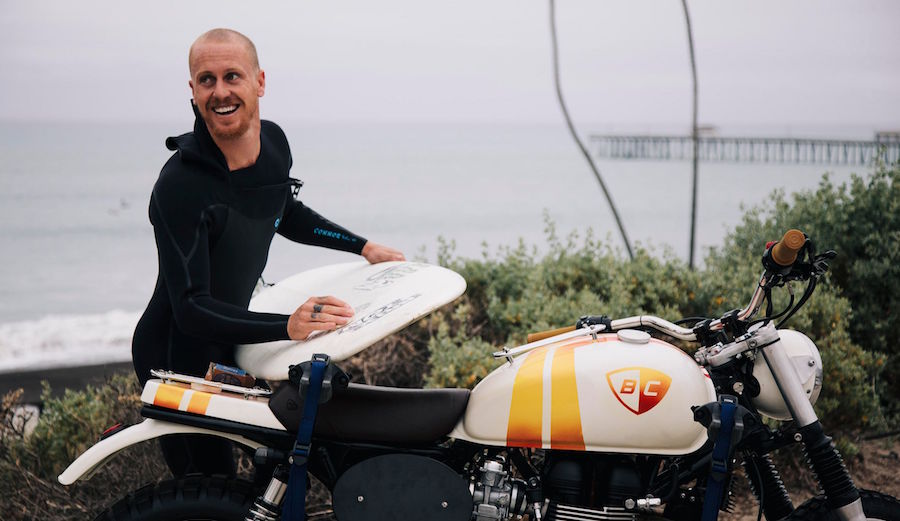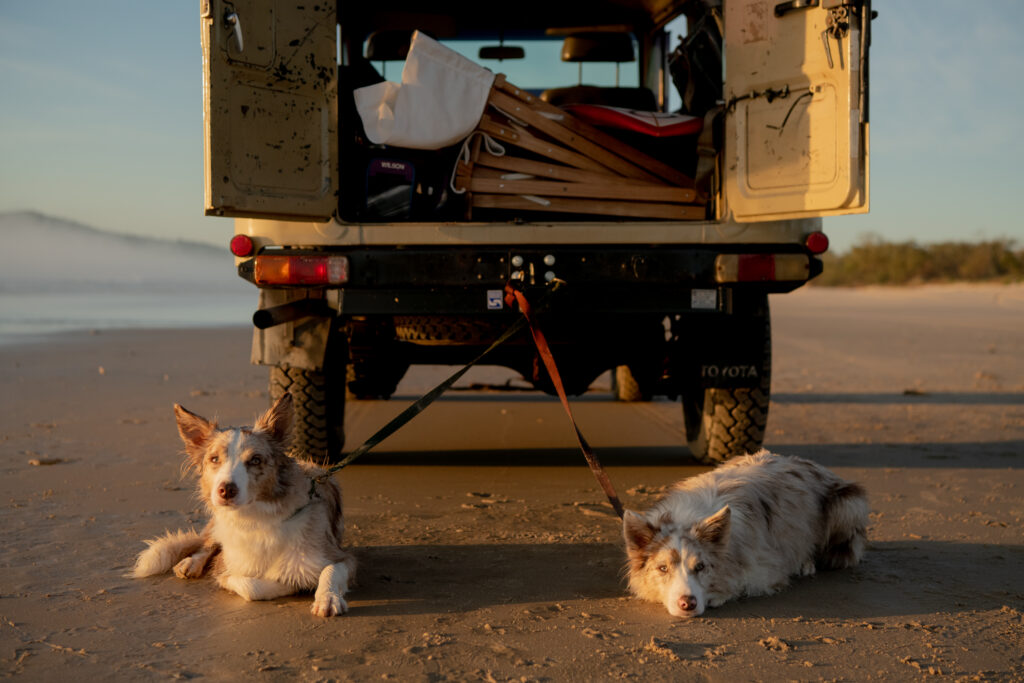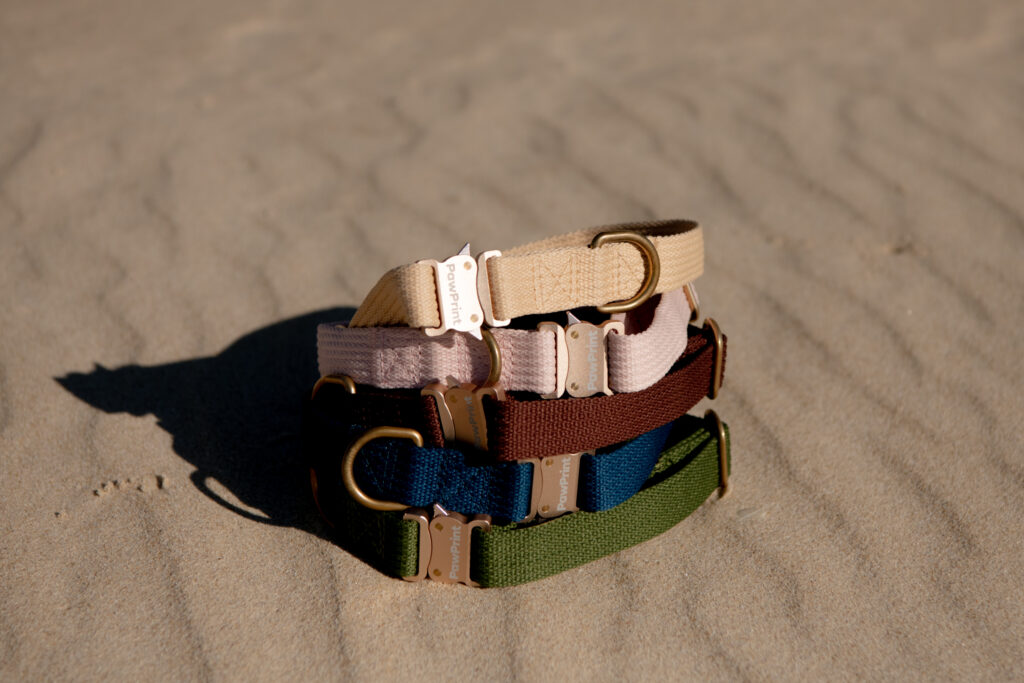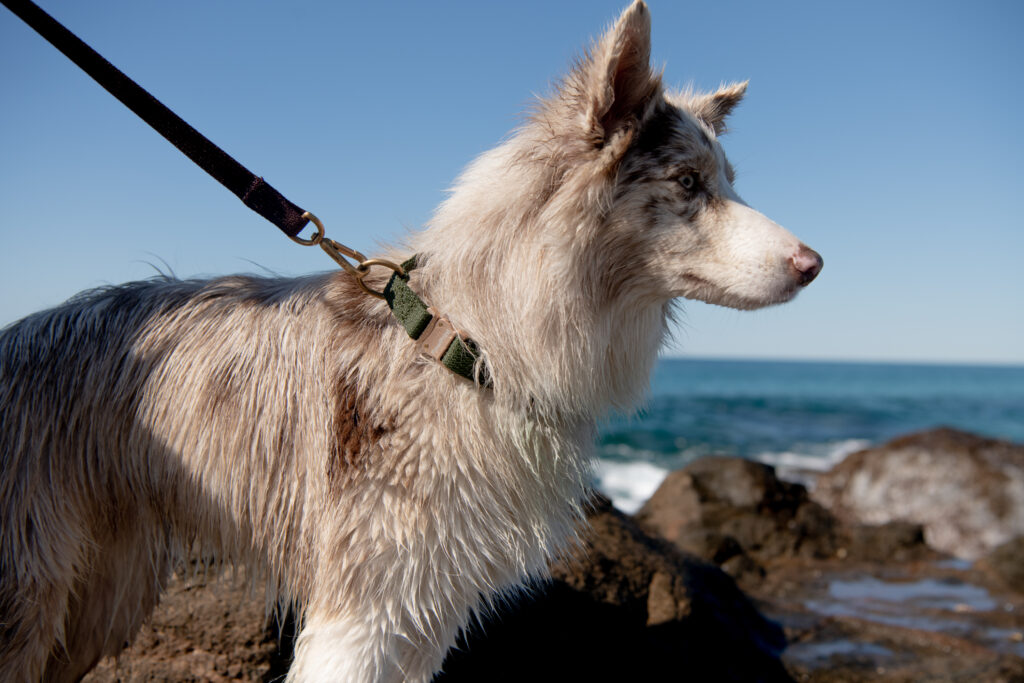Can Chippa Wilson’s Dog Leash Brand Break Free From The Greenwashing Pandemic?
Insights from the creative mind behind the unexpected entrepreneurial endeavor.
It’s easy to admire terrific surfers from afar. Onscreen personalities can seem so mystical, so alluring. The perpetual curation of the modern identity has led to a world where we can believe we understand everything about someone we’ve never met.
So, when I witnessed Chippa Wilson — the heavily tattooed, motorcycle riding, thrash metal listening luminary of technical trickery — gently nourishing a dying Indonesian kitten back to life during the recent Stab High, I had to do a bit of perspective re-alignment.

As I got to know him a bit better, Chip continued to reveal himself as one of the kindest souls to ever grace a surfboard.
But, when I heard that he, his sustainably influential partner Brinkley Davies, and ex-Billabong marketing creative Saxon Gallaher were starting a ‘sustainable leash company,’ I was wary — wondering if we really needed another surf accessory company.
However, upon calling Saxon, the creative inspiration behind Chippa’s new brand, I quickly realized it was not the kind of sustainable leashes I had originally thought.

Dubbed ‘PawPrint,’ the surfer-owned company is poised to become the world’s first truly sustainable pet accessory brand.
And, as much as this might seem like advertorial — it’s not. Between How Surfers Get Paid and the contemporary absence of stickers on surfboards, we’ve learned that any surfer leaping into the abyss of entrepreneurship deserves a nod of respect. Especially if they’ve played a role in introducing a potentially world-altering technology to the mainstream.
The secret ingredient to their brand is a paradigm shifting chemical process pioneered by researchers at the Eastern Switzerland University of Applied Sciences — the details of which are being kept very much under wraps.
“It’s quite easy to build a product partially using recycled material, but to build it entirely out of recycled material, without having to make sacrifices on the quality, was a big mountain to climb,” creative mastermind, Saxon, tells me.
“It’s so strange, I originally thought that the main problem with ocean-bound plastic was that it was prohibitively difficult to access and retrieve, and it was just gross — but the problem actually has much more to do with chemistry, than it does with capitalism. And, that problem has recently been surmounted by the Eastern Switzerland University of Applied Sciences. They can turn once-thought dead material into this viable base product for producing any new plastic products.
“To a basic degree, when plastic is discarded, it eventually gets irradiated by the sun and goes through this process of embrittlement, where it actually changes on a molecular level and becomes very difficult to pluck it out of the ocean and use for anything.

“But this new invention has created a potential value chain where there was none before. So now there will actually be an incentive for people in these massive plastic eddies around Indonesia and Vietnam to pluck the plastic out of the sea and sell it to companies like ours. In that respect, capitalism may be working to remove the plastic — it’s the first viable solution to the problem of plastic pollution, because it’s not relying simply on altruism.”
“In Australia, pet products are sold in these giant buildings that stock so many products and offer so many services. I’m not even that environmentally altruistic as a person, but even for me, it was super jarring to see how few sustainable pet products were available.
“I started talking with Chippa, and he mentioned that his partner, Brinkley, is a full tilt environmentalist. She’s an extremely altruistic, environmentally conscious woman, who has devoted her whole life to researching and caring for the planet. I jumped on the phone with them and they were 100% in. So we just went guns blazing, designing products and linking up with manufacturers to build the first range.”

Though they’ve begun with just leashes and collars, Saxon says they’ll be expanding into tug toys, frisbees, bowls, etc., all made from Yulex — the same rubber alternative company who Patagonia uses to construct their wetsuits.
Saxon waxes, “Pet stores are just a veritable maze of products and services, bells and whistles, and plastic, plastic, plastic. No ones doing anything legit, no ones doing anything green — it’s really quite sad. My vision is to eventually disappear into obscurity, into a sea of similar brands that sell equally sustainable products, backed by equally legitimate missions. I want the whole industry to change, and to die a really happy man. ”
If you’ve got a pup, and you’d like to support a couple surfers trying to do the right thing, click here to get yourself a collar and a leash — and throw in promo code STAB15 at checkout for 15% off your order.





Comments
Comments are a Stab Premium feature. Gotta join to talk shop.
Already a member? Sign In
Want to join? Sign Up